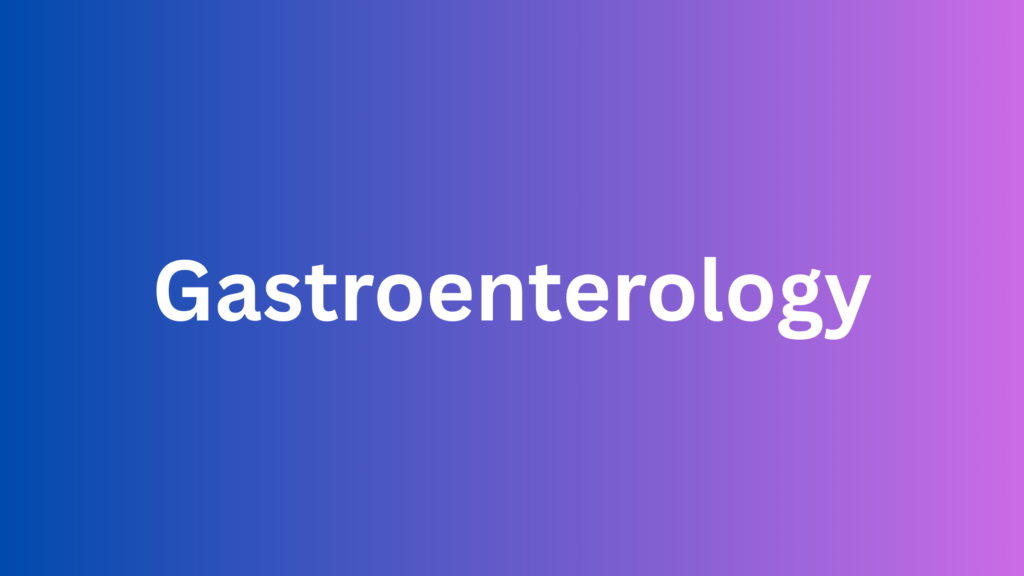astroenterology is the branch of medicine that focuses on the digestive system and its disorders. This system includes the entire gastrointestinal (GI) tract—from the mouth and esophagus, through the stomach and intestines, to the rectum and anus—as well as associated organs like the liver, gallbladder, and pancreas.
A gastroenterologist is a medical doctor who specializes in diagnosing and treating conditions that affect digestion, nutrient absorption, and waste elimination.
Organs Involved in Gastroenterology
Esophagus – the tube that carries food from your mouth to your stomach
Stomach – where food is broken down by acids and enzymes
Small intestine – absorbs nutrients from food
Large intestine (colon) – absorbs water and forms stool
Liver – processes nutrients and detoxifies the blood
Gallbladder – stores bile to help digest fats
Pancreas – produces enzymes and insulin
Rectum and anus – involved in stool storage and elimination
Common Conditions Treated by a Gastroenterologist
Gastroenterologists treat a wide variety of conditions, including:
Digestive Tract Disorders:
Acid reflux / GERD
Ulcers
Gastritis
Irritable Bowel Syndrome (IBS)
Inflammatory Bowel Disease (IBD): Crohn’s disease & Ulcerative colitis
Celiac disease
Constipation & diarrhea
Colon polyps
Colorectal cancer
Hemorrhoids
Liver, Gallbladder, and Pancreas Disorders:
Hepatitis (A, B, C)
Fatty liver disease (NAFLD / NASH)
Cirrhosis
Gallstones
Pancreatitis
Treatments in Gastroenterology
Gastroenterology treatments vary based on the condition. They may include:
1. Lifestyle and Dietary Modifications
Special diets (low FODMAP for IBS, gluten-free for celiac)
Weight management
Alcohol and tobacco cessation
Increasing fiber and hydration
2. Medication Management
Antacids and proton pump inhibitors (PPIs) for acid reflux
Antibiotics for infections like H. pylori
Anti-inflammatory drugs for IBD
Laxatives or antidiarrheal drugs
Immunosuppressants and biologic therapy
Liver-protecting medications for hepatitis or fatty liver
3. Endoscopic Procedures
Performed using a thin, flexible tube with a camera (endoscope):
Upper endoscopy (EGD) – to diagnose ulcers, reflux, or swallowing problems
Colonoscopy – for colon cancer screening or polyp removal
Sigmoidoscopy – to examine the lower colon
Capsule endoscopy – small camera pill to visualize the small intestine
ERCP – to diagnose and treat bile duct and pancreatic issues
4. Surgical or Minimally Invasive Interventions
In coordination with surgeons when needed:
Removal of tumors or polyps
Gallbladder removal
Hemorrhoid procedures
Drainage of abscesses or fluid collections
5. Ongoing Monitoring and Follow-Up
Regular colonoscopies for cancer prevention
Blood tests to monitor liver function or inflammation
Imaging tests (ultrasound, CT, MRI)
Long-term management for chronic illnesses like Crohn’s or hepatitis
When to See a Gastroenterologist
You may need to see a gastroenterologist if you have:
Frequent heartburn or indigestion
Abdominal pain, bloating, or gas
Persistent diarrhea or constipation
Blood in your stool or black, tarry stools
Unexplained weight loss
Difficulty swallowing
A family history of colon cancer or GI disease
